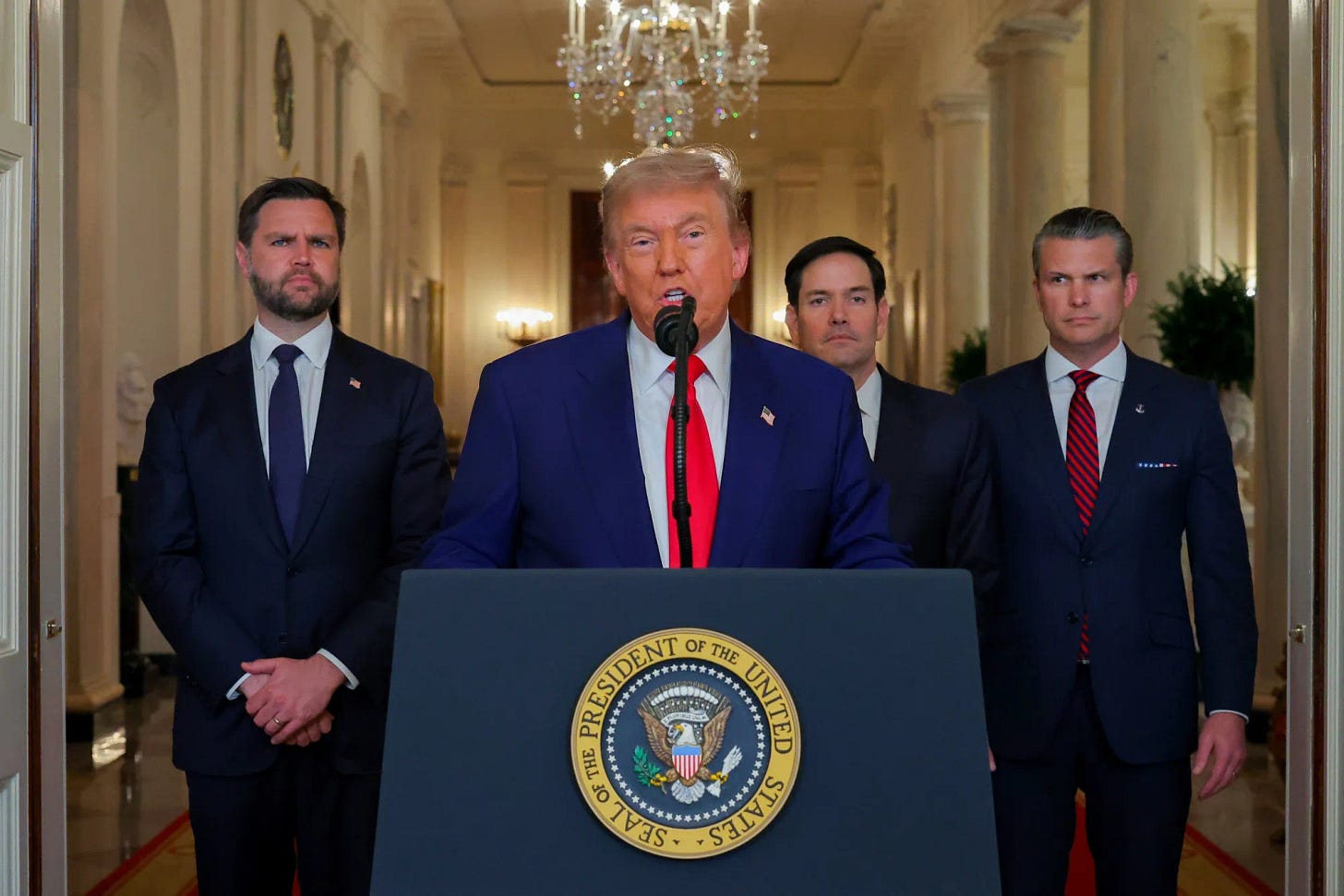The Return of Resolve: Why the U.S. Strike on Iran’s Nuclear Sites Marks a Turning Point for the West
How the U.S. strike on Iran signals the West's long-overdue return to moral clarity and strategic courage.
On June 22, 2025, the United States launched coordinated strikes against Iran’s nuclear facilities—a move as geopolitically bold as it is historically significant. In an era defined by retreat, hedging, and moral detachment masquerading as diplomacy, this operation represents something we have not seen in years: a clear assertion of Western resolve, gro…



